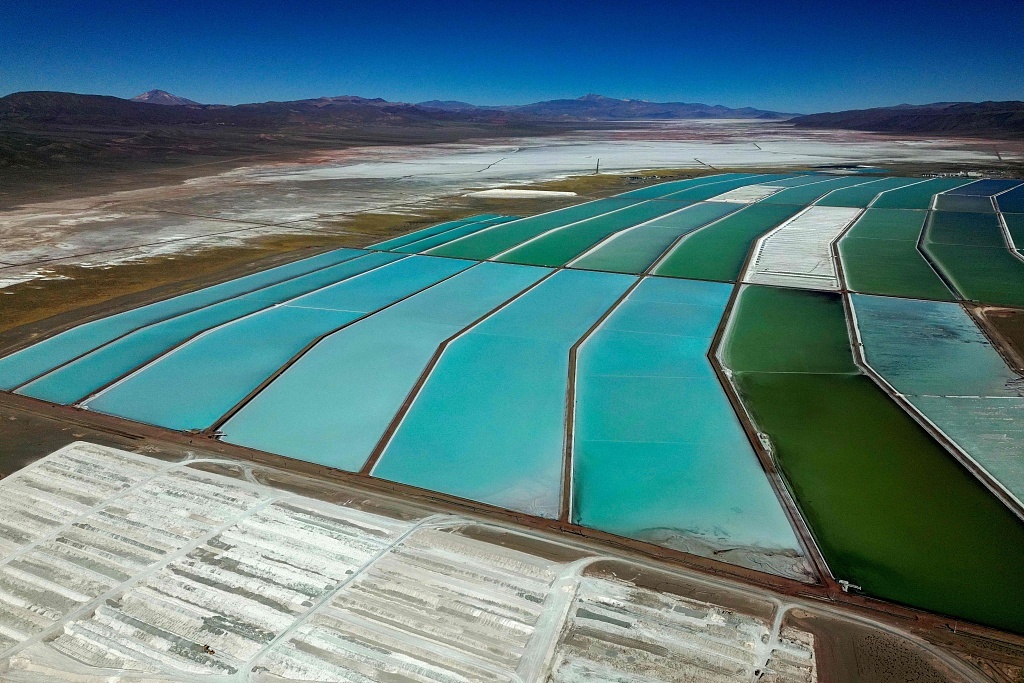An investment and trade deal in key mining sectors will be signed by the two governments during his Fernández visit to Argentina this week, Bloomberg reported Tuesday. The report said it was part of an effort by the US to strengthen global metal supply chains that“Exclude China”. But the report acknowledged that Millay, which insists on an alliance with the US, was struggling to insulate itself from Beijing’s influence because China is its second-largest trading partner.
With the increasing global demand for clean energy, key minerals such as lithium, cobalt, nickel and manganese have become strategic resources for major powers. In June 2022, the U.S. government led a coalition called the mining safety partnership (MSP) , which pledged to stimulate government and private investment in minerals to reduce dependence on Chinese minerals, the minerals are widely used to make batteries for electric cars and solar panels. Members include 14 countries including Australia, Canada, Finland, France, Germany, Japan, South Korea, Switzerland, the United Kingdom and the European Union.
Argentina is rich in copper and lithium, only a fraction of which is currently mined. The report said the agreement would make it easier for Argentina to work with MSP members “As a way for Argentina to market to 14 countries and the European Union at a time,” the Fernández said. The US State Department website said the Fernández and the US Ambassador will host the MSP Forum in Buenos Aires on the 23rd, to share“More information on lithium and copper mining opportunities in Argentina”. Argentina is now the world’s fourth-largest producer of lithium and one of the world’s leaders in developing new copper resources, with many lithium and copper projects in several provinces for investment, according to the US State Department.

An aerial 2024 of the lithium extraction evaporation pool on the Salt evaporation pond river in auralos, Jujuy Province, Argentina, on July 1,2010.
However, it remains to be seen whether the MSP Alliance and the pending us-arab agreement will lead to substantive cooperation. Bloomberg reports that MSP has held only a handful of high-level talks since its launch in 2022, with little real investment. Even with the minerals deal, Argentina is still excluded from the US’s inflation-reduction act, and it has not signed a free-trade agreement with the US.
Nor is it certain that the US will succeed in creating“Cliques” in key mineral areas. Global Times noted that even the Fernández said in September that while Washington was seeking to diversify its sources of raw materials for everything from electric car batteries to solar panels, but the US can not exclude China from key mineral supply chains. Foreign media have reported that China is the undisputed leader in the global supply chain for key minerals, accounting for about 60 per cent of global production of rare earth minerals and materials.
Argentine President Millay is finding it hard to “Decouple” from China, the Wall Street Journal reported Monday. Millay said Chinese investment and trade were vital to the country’s future and that China had deepened its ties with the country in key economic areas, these include lithium mining companies in the arid north of Argentina and agriculture on the vast plains of the agricultural belt. China is Argentina’s second-largest trading partner after neighboring Brazil, with trade worth about $20 billion last year, compared with $14 billion with the United States, the report said. Argentine exports to China have risen sevenfold in the past two decades as China has invested in mining, oil and gas, finance and construction.
Zhou Zhiwei, a researcher and deputy director of the International Relations Department at the Latin American Institute of the Chinese Academy of Social Sciences, told the Global Times on the 22nd that the United States is cracking down on and blocking China in key mineral areas, argentina, which has undergone a fundamental change in its political ecology, is the target of its efforts to win over more. The current economic situation and investment climate in Argentina are not stable, so it remains to be seen whether the us-led Partnership for mineral security will engage in substantial investment cooperation with Argentina. Moreover, Argentina’s mineral resources are owned by private companies that are more concerned with costs and benefits than political influence. In fact, Argentina’s domestic companies, the media and so on are also disgusted with the political manipulation of the United States. And in Latin more generally, Bolivia insists on an independent foreign policy and international economic cooperation, and is even less willing to join the so-called“Clique.”.